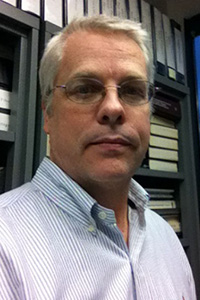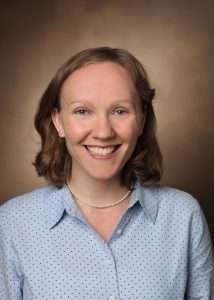People – Academics and HE Professionals

Meet the NISE Fellows
Click the button to the right to learn all about our current and former Neurodiversity Inspired Science and Engineering (NISE) Fellows.

DR. JAMES BODFISH
Deputy Director of Clinical Translation
Dr. Bodfish’s research focuses on the pathogenesis and treatment of autism. In particular, he focuses on severe and treatment-resistant forms of autism or what can be termed “autism plus.” Clinically, this includes complex presentations of autism such as behavior & mood problems, nonverbal / minimally verbal, cognitive deficits, sensory & motor disorders, and genetic conditions. The central questions in his research are: what are the objectively measureable characteristics of children with autism who demonstrate poor developmental outcomes, and what are the neuro-behavioral processes that underlie these adverse developmental trajectories? Bodfish is also a clinician and strives to maintain a close linkage of his research with autism clinical service-delivery programs. The Bodfish lab consists of an equal partnership of clinicians, and basic and applied researchers. They use a variety of behavioral neuroscience approaches and methods including: measurement of behavioral phenotypes and dense observational measurement of behavioral patterns (naturalistic objective behavioral observation & coding, micro-behavioral analysis, eye-tracking); measurement of sensory, motor, and affective function (sensory psychophysics, kinematics, pupilometry, facial action coding); measurement of peripheral (autonomic) and central (electrophsyiology, functional neuroimaging) nervous system function. Their translational work includes development of outcome measures, development of behavioral / psychosocial treatment procedures, and behavioral assays for drug discovery in preclinical (mouse) models. The short-term goal of their multi-method approach is to identify valid and reliable markers of the processes that may lead to the development of atypical behaviors that can adversely impact brain and behavioral development. The long-term goal of their research is to leverage models of pathogenesis to develop novel intervention approaches for autism.
Lee Burdette Williams
Executive Director, College Autism Network

Perhaps the best preparation for my work in higher education was the time I spent getting into and out of trouble throughout my education, beginning with the Little Red House Nursery School. I have a well-developed sense of irony, a keen ear for shaky excuses, and a genuine appreciation of students who don’t see things quite the way their institution might want them to.
I have had the privilege of serving as Vice President for Student Affairs and Dean of Students at Wheaton College (MA, not IL), and Dean of Students at the University of Connecticut. For several years, I stepped away from full-time higher education administration in order to learn more about serving college students with Autism Spectrum Disorder (ASD), and was lucky enough to do that for two years with Mansfield Hall in Burlington, VT, as Director of Collegiate Partnerships.
These days, I manage the College Autism Network, and consult with colleges and universities seeking to improve their services to students with autism. I also have College Readiness Conversations with high school students and their families about the realities of campus-based support for mental health and learning challenges. I occasionally teach in the University of Vermont's Higher Ed and Student Affairs graduate program. And I write as often as I can about all of this.
Julie Taylor
Associate Professor of Pediatrics, Vanderbilt Kennedy Center

Julie is an Associate Professor of Pediatrics and Psychiatry & Behavioral Sciences and Co-Director of Vanderbilt Kennedy Center for Excellence in Developmental Disabilities at the Vanderbilt University Medical Center. She earned her PhD in Developmental Psychology from Notre Dame.
The goal of Dr. Taylor’s research program is to understand how to promote positive outcomes in adulthood for individuals with intellectual/developmental disabilities and their families. Much of her current work focuses on the transition to adulthood for youth on the autism spectrum. Current projects include: (a) developing and testing a parent advocacy training to improve service access and post-school outcomes as youth on the autism spectrum transition from school-based to adult services: (b) understanding the implications of employment and other day-to-day experiences for mental health and quality of life; (c) examining unique vulnerabilities of women on the autism spectrum, as well as vulnerabilities common across sex/gender; and (d) investigating the role of language development during the transition to adulthood for youth with fragile X syndrome.
Amy Weitlauf
Executive Director, College Autism Network

Amy Weitlauf is a Licensed Clinical Psychologist and Associate Professor of Pediatrics at Vanderbilt University Medical Center. She is the Associate Director of Research at the Vanderbilt Kennedy Center's Treatment and Research Institute for Autism Spectrum Disorders. Her work focuses on increasing accessibility to autism diagnosis and care. She is also the parent of two neurodivergent children.
She collaborates with teams across the medical center and university to diagnose, research, and publish on novel systems of care for people with autism and their families.

